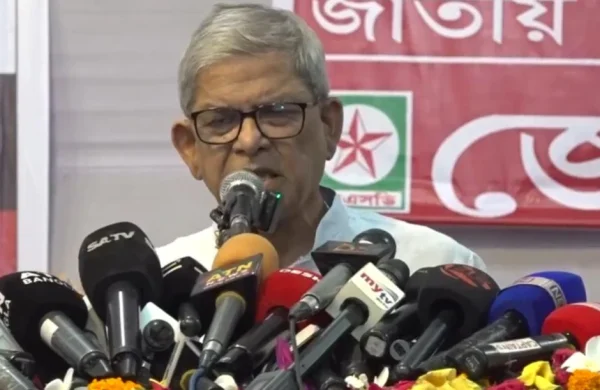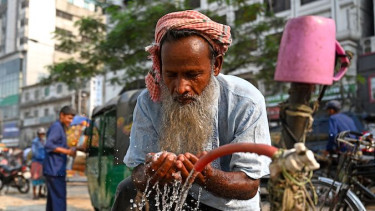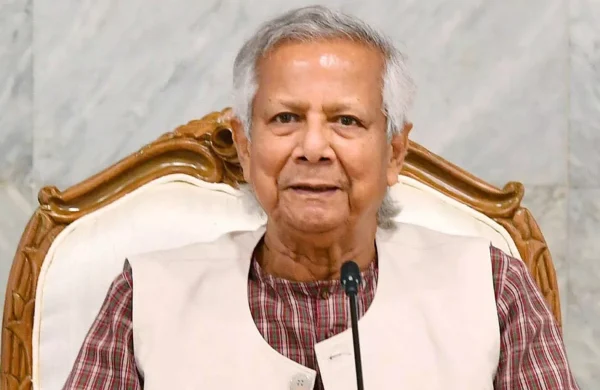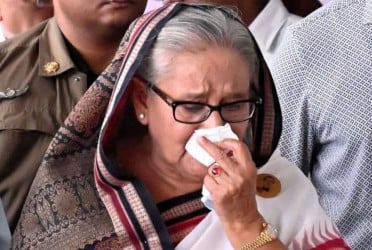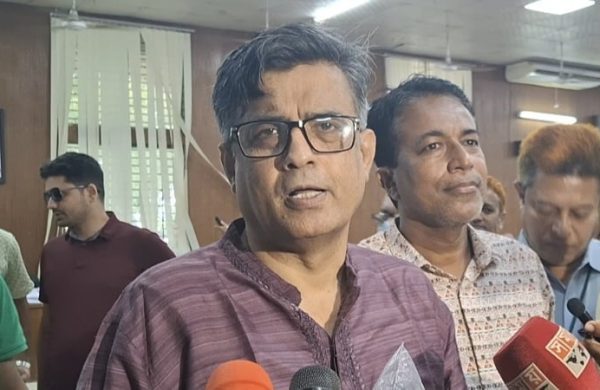How secure is dependence on remittance?
- Update Time : Sunday, August 3, 2025

Staff Correspondent:
Bangladesh’s economy continues to lean heavily on the flow of remittances from migrant workers, a key driver for foreign reserves, debt repayments and import payments.
In the past six months, the country has enjoyed a strong remittance windfall. Yet economists and migration experts remain uncertain about the long-term sustainability of this reliance.
According to Bangladesh Bank, over USD 30 billion in remittances were sent to the country during the 2023–24 fiscal year, averaging USD 2.5 billion per month.
In March alone, Bangladesh recorded a historic peak of USD 3 billion, marking the highest monthly inflow of remittances in its history. These figures show steady progress when compared to previous years.
Despite this growing dependence, experts caution that the economic support from this sector may not remain as secure in the future, especially considering changing global conditions.
Data from the Bureau of Manpower, Employment and Training (BMET) shows that nearly 15 million Bangladeshis live abroad, of whom approximately 6 to 6.5 million regularly send remittances home.
A significant portion of this remittance flow originates from Middle Eastern nations, where about 34 percent of Bangladeshi migrants are based, mostly working as manual labourers across various sectors.
An analysis of the Bangladesh Bank’s latest remittance report indicates that Saudi Arabia, the UAE, Oman, Kuwait and Qatar are the top contributors.
Over 70 percent of the workers who left Bangladesh in the first five months of this year headed for Saudi Arabia alone.
Labour migration to other countries has, however, declined.
The UAE, Bangladesh’s second-largest remittance contributor in the Middle East, has halted the intake of Bangladeshi workers, while Oman’s labour market remains closed.
Among Asian nations, Malaysia was a major destination, but since last year, the outflow of workers to the country has been completely suspended. Italy, a prime destination for Bangladeshi workers in Europe, is also becoming increasingly difficult to access through legal channels. Many have returned home after failing to secure work abroad, particularly in European countries.
A recent study conducted by the Economic Study Centre of Dhaka University titled ‘The Economic Significance of Remittance in Bangladesh’ sheds light on the actual sources of remittance inflow. It states that the lion’s share comes from blue-collar worker who are employed in low-income and physically demanding jobs.
While their hard-earned money fuels the nation’s economy, their own lives abroad often remain marred by hardship. The once-promising route to upward mobility is becoming increasingly difficult.
BMET data shows that while about 1.3 million people left the country in search of work in 2023, the number dropped to 1 million in 2024. Many of those who went abroad in 2023 have already returned empty-handed. The agency has no precise records on how many labourers return to the country each year using ‘outpasses’.
The Wage Earners’ Welfare Board reports that over 80,000 workers returned home on outpasses in 2024, compared to just over 50,000 a decade ago.
Many of these workers had sold family assets or taken out loans to finance their overseas employment. But failing to secure the promised work, they were forced to return—some even re-entering the country as undocumented migrants after losing legal status abroad.
Those struggling to survive in foreign lands often suffer from severe mental distress.
According to a 2024 survey by the Refugee and Migratory Movements Research Unit (RMMRU), the average life expectancy of Bangladeshi migrant workers is just 37 years, compared to over 70 years in the general population.
A vast majority of migrants do not receive the work they were promised. To survive, many are compelled to perform hazardous tasks for low pay.
Among Bangladeshi migrant workers, 31 percent die of unnatural causes, 16 percent from various accidents, and only 28 percent pass away naturally. Most alarmingly, 15 percent resort to suicide due to unbearable life conditions abroad.
“Overseas workers are treated as nothing more than money machines,” said Marina Sultana, Director of RMMRU and a noted migration researcher.
“They are sending money that boosts reserves, but policymakers consistently neglect their futures. While other countries stand up for the rights of their migrant workers, Bangladesh lags far behind. This is discouraging people from going abroad, straining domestic employment and increasing unemployment, which ultimately impacts the economy,” she said.
Around 3,000 recruiting agencies are authorised to send workers abroad. However, these agencies have long faced allegations of malpractice and corruption.
While a few have faced punishment, meaningful reform remains absent. Protected by political connections and supported by groups within relevant ministries, many of these agencies have formed powerful syndicates.
A High Court report submitted by the Ministry of Expatriates’ Welfare and Overseas Employment in April this year revealed damning information. It stated that 17,777 workers were unable to go to Malaysia due to agency failures.
Besides, these agencies charged aspiring migrants exorbitantly, well beyond the government-fixed fee of Tk 78,990.
A separate report by the Anti-Corruption Commission in May confirmed that some agencies had charged up to Tk 500,000 per person for Malaysian jobs. Between 2021 and 2024, 13 agencies were found to have embezzled over Tk 1,000 crore from aspiring workers.
Linking recruitment ethics with remittance sustainability, Marina Sultana said, “Until ethical recruitment is ensured, remittances cannot be regarded as a stable and robust economic pillar. These agencies must be held accountable for repeated failures and malpractice, or else the country risks a sudden collapse in remittance inflow.”
She also raised concerns over the failure to train and send skilled workers abroad.
“Countries like Nepal and Sri Lanka are exporting skilled labour. Despite having numerous training centres, Bangladesh still largely exports unskilled workers. Countries such as Hong Kong and Singapore could be promising markets for female workers. Yet the cycle of relying on low-skilled migrants in the Middle East continues. Though remittance numbers are good for now, the future remains uncertain,” Marina said.
Migration experts say the demand is shifting globally, particularly in the Middle East, towards skilled workers. Even in Saudi Arabia, Bangladesh’s biggest remittance contributor, new standards are being set ahead of the 2034 FIFA World Cup, with skills and qualifications becoming mandatory.
With the global tide changing, it may be time for Bangladesh to move beyond celebrating record-high remittances and instead focus on securing the well-being and rights of the people who make those numbers possible.




